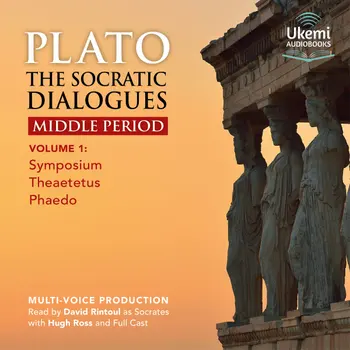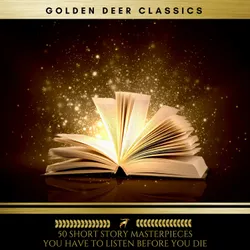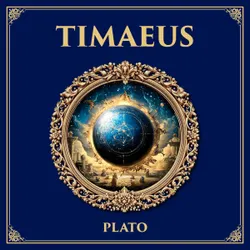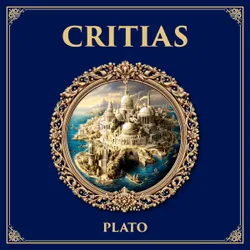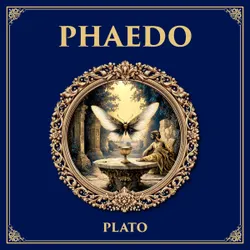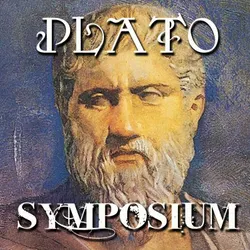Here are three important but very different Dialogues from the Middle Period. Symposium, the most well-known in this collection, is concerned with the theme of love. In the house of Agathon, a group of friends - each very different in personality and background - meet to consider and discuss various kinds of love. Each one, Phaedrus, Pausanias, Eryximachus, Aristophanes (the playwright) and Agathon (a prize-winning tragic poet), presents his particular view in a short discourse until Socrates speaks at greater length. This would be the end except that, unexpectedly, Alcibiades (the vain general and controversial statesman) arrives, rather worse for drink, and makes his loud contribution with direct references to his personal relationship with Socrates. Symposium is an absorbing Dialogue, related, however, by one man - Apollodorus. It is read here by Hugh Ross.
Phaedo is a very different Dialogue. It contains the moving account of the last hours of Socrates. Condemned to death by the Athenian court for impiety and the corruption of youth, he has been ordered to commit suicide. Friends gather around him on this last day, but even at such a moment Socrates chooses to spend the time considering the nature of the soul, whether it is immortal and what may happen after death. It concludes with a description of his final moments.
In Theaetetus, Socrates engages with a young mathematician on the definition of knowledge, the examined life, and how the active life compares with the contemplative life.
Translation by Benjamin Jowett.
